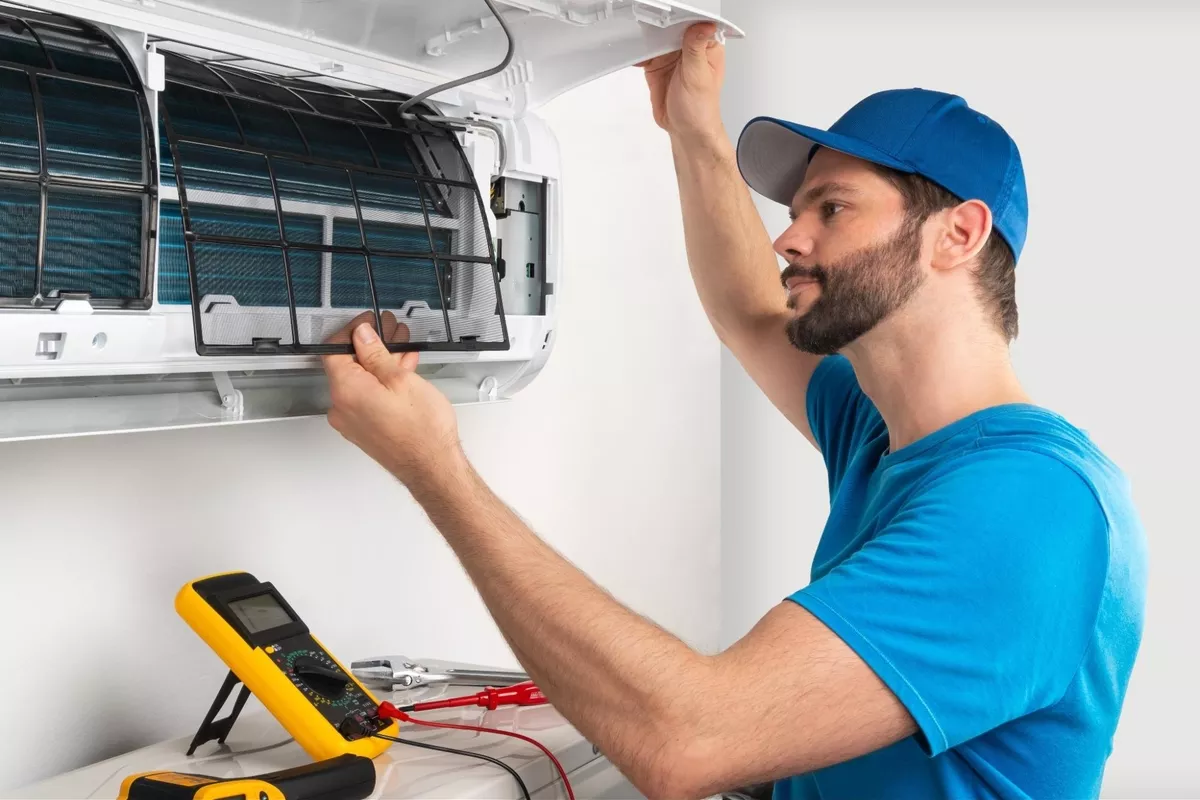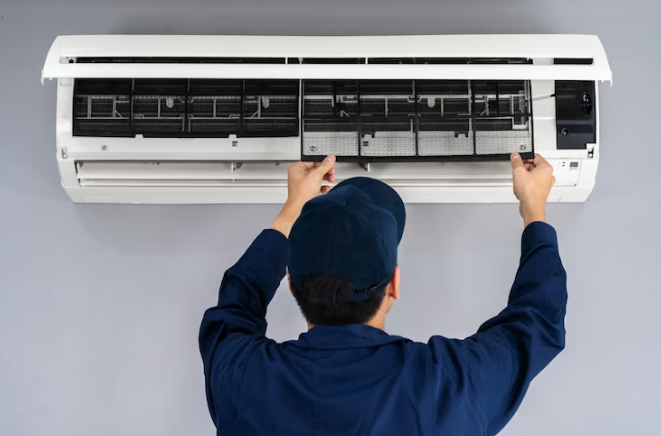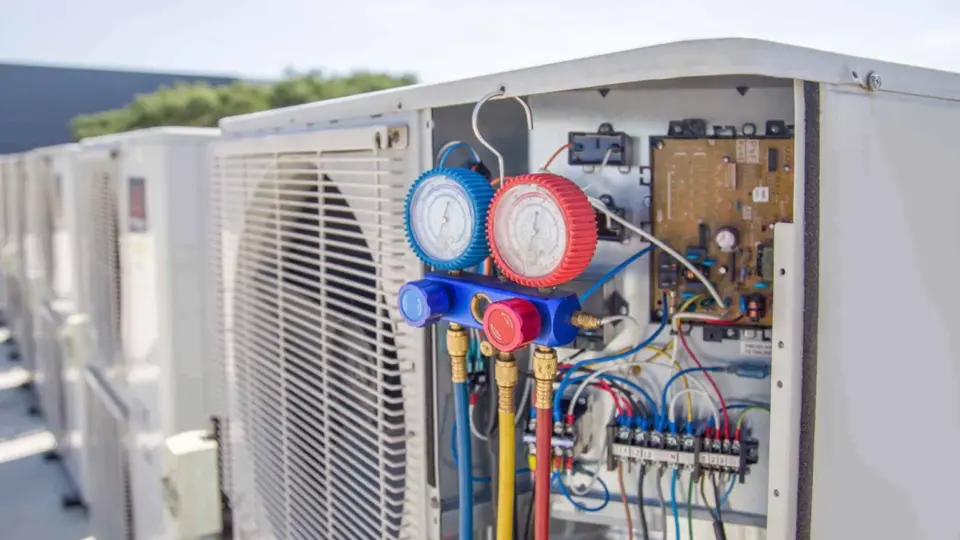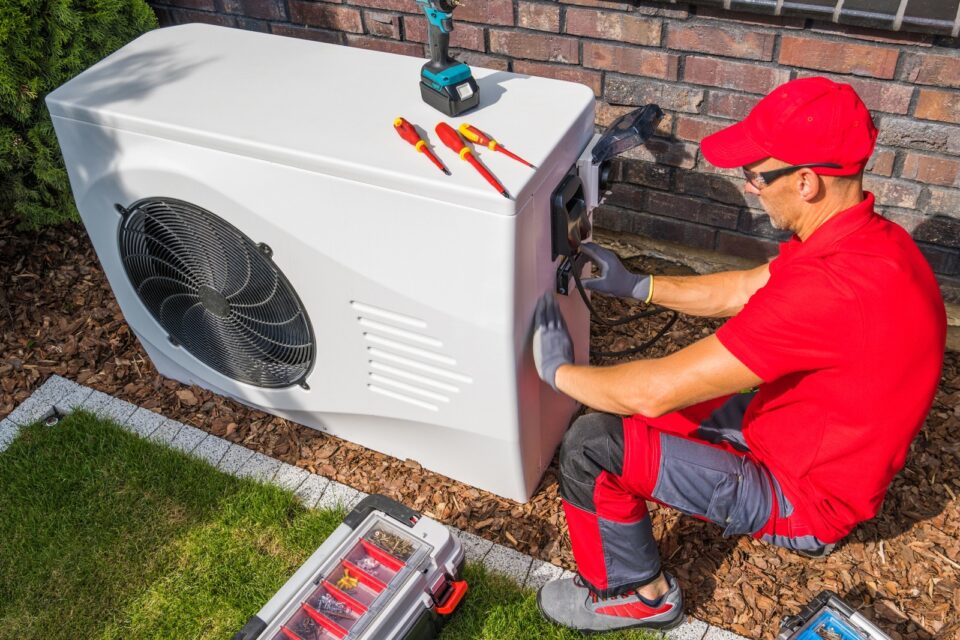You’re shopping for a new AC system, trying to beat the heat and avoid another summer of high energy bills. But then your HVAC contractor mentions heat pumps—and suddenly, you’re looking at more than just a replacement.
You’re looking at an upgrade. Heat pumps offer both cooling and heating in one system, and in many homes, they’re more efficient and cost-effective over time. But here’s the thing: most people don’t know much about them until their contractor explains the benefits. And once they do, the choice becomes a lot more interesting.
If you’re in the middle of an HVAC decision, don’t overlook heat pumps. They’re not just for cold climates, and they’re not just a trend. They’re a smart, flexible solution that can make your home more comfortable year-round—and save you money while they’re at it.
How Does a Heat Pump Compare to a Traditional Air Conditioner During HVAC Replacement?
At first glance, a heat pump and a traditional central air conditioner look pretty similar. They both have outdoor units, use refrigerant, and circulate air through your ducts. They both cool your home by pulling heat from inside and releasing it outside. But here’s the key difference:
A heat pump can reverse its function.
That means in the colder months, a heat pump can pull heat from the outside air (even when it’s chilly) and bring it inside—warming your home without relying on a separate furnace.
Comparing the basics:
| Feature | Traditional AC | Heat Pump |
| Cools the home | ✅ | ✅ |
| Heats the home | ❌ | ✅ |
| Energy efficiency | High | Very High (in cooling & heating) |
| Requires separate furnace? | Yes | Optional (especially in mild climates) |
| Uses refrigerant? | Yes | Yes |
| Cost to install | Lower upfront | Slightly higher upfront, lower long-term cost |
What surprises many homeowners is that heat pumps can be a direct replacement for a central air conditioner. You can still use your existing ductwork, thermostat, and air handler. So when your contractor says “Let’s look at a heat pump,” they’re not adding complexity—they’re giving you a smarter, more flexible solution.
Why Do Contractors Often Recommend Heat Pumps During Cooling System Upgrades?
HVAC contractors live in the trenches. They see what works and what doesn’t—not just in terms of comfort, but in long-term value, energy savings, and future-proofing. So when they bring up heat pumps, it’s usually for practical reasons, not sales gimmicks.
Here’s what contractors know—and why they bring up heat pumps during replacement discussions:
1. Dual Functionality Makes Sense
Most homes need both cooling and heating. Instead of replacing an AC now and a furnace later, a heat pump gives you year-round climate control in one system.
2. Energy Efficiency = Lower Bills
Heat pumps are incredibly efficient—especially modern models with inverter technology. In many cases, they can reduce heating and cooling costs by 20–40%, depending on climate and usage.
3. Better for the Environment
Because heat pumps don’t rely on fossil fuels to create heat (like gas furnaces do), they produce fewer carbon emissions and align better with new energy codes and incentives.
4. Financial Incentives
Local, state, and federal programs often provide rebates or tax credits for heat pump installations due to their energy efficiency. Your contractor may be helping you unlock hundreds or even thousands of dollars in savings.
5. Home Comfort Upgrades
Modern heat pumps offer variable-speed operation, which means fewer temperature swings, quieter performance, and better humidity control than many traditional AC units.
In other words, contractors aren’t just suggesting heat pumps because they’re trendy. They’re suggesting them because they make sense for your comfort, your budget, and your home’s future.
What Energy Savings Can Homeowners Expect When Switching to a Heat Pump?
Let’s talk numbers—because that’s where the heat pump really starts to shine.
Heat pumps are not just efficient. They’re super-efficient, especially when used for both cooling and heating. The U.S. Department of Energy estimates that switching from electric resistance heating to a heat pump can cut electricity use for heating by 50% or more. Even when compared to gas furnaces, heat pumps often come out ahead in milder climates.
Here’s how the savings break down:
- Cooling Season
Heat pumps use inverter-driven compressors and variable-speed fans, which adjust in real time to match the cooling load. That means no energy is wasted on “overcooling” your home, leading to lower electric bills. - Heating Season
Instead of burning fuel, heat pumps move heat. This process is much more efficient than generating heat from scratch. For every unit of electricity consumed, a heat pump can deliver 2 to 3 units of heat energy—something no furnace can claim. - Maintenance Costs
With fewer moving parts than a traditional AC/furnace combo, heat pumps can cost less to maintain in the long run, especially with consistent servicing. - Eligibility for Rebates
In many areas, utility providers or government programs offer incentives for switching to high-efficiency heat pumps—sometimes up to $2,000 or more.
Example:
If your current heating system is an older electric furnace and your summer AC is struggling, a heat pump could easily cut your annual energy expenses by 30% to 40%, depending on your home and climate.
And those savings add up quickly—especially with energy prices on the rise.
Are Heat Pumps Effective For Both Heating and Cooling in All Climates?
This is probably the most common (and understandable) concern clients have: “Aren’t heat pumps only good in warm areas?”
It’s a myth that heat pumps only work in the Sunbelt. Thanks to advances in cold-climate technology, modern heat pumps are effective well below freezing, even in places like New England, the Midwest, and parts of Canada.
What makes them capable of a cold climate?
- Inverter Compressors
These allow the heat pump to adjust output continuously, improving efficiency and performance in varying conditions. - Enhanced Refrigerant Cycles
New refrigerants and coil designs make it possible to extract heat from air as cold as -5°F to -15°F, depending on the system. - Dual-Fuel Configurations
In extreme climates, a heat pump can be paired with a high-efficiency furnace for a hybrid system that switches based on temperature thresholds—delivering the best of both worlds. - Zoned Heating and Cooling
Many homeowners in colder regions use ductless mini-split heat pumps in specific rooms or additions, reducing the load on their central system and improving overall comfort.
So yes—heat pumps can absolutely handle heating and cooling, even in chillier zip codes. It’s just a matter of choosing the right system and having it installed by a contractor who understands climate design.
Don’t Replace—Upgrade Smartly
Most homeowners come into an HVAC replacement conversation thinking they need a new air conditioner. But what they really need is an upgrade that aligns with their comfort, energy goals, and future needs.
That’s why good contractors bring up heat pumps—not as a sales pitch, but as an opportunity. A chance to replace your failing AC with a system that’s smarter, more efficient, and more valuable over time.
Heat pumps aren’t just for the eco-conscious or early adopters anymore. They’re for anyone who wants lower bills, year-round performance, and a cooling system that works with your home, not against it.
So the next time your AC gives out, don’t just ask “What’s the best replacement?” Ask your contractor about heat pumps—and discover what you’ve been missing.
Explore the Heat Pump Advantage with Elite Air & Heat
Ready to replace your old AC but want something better than the same old setup? At Elite Air & Heat, we help homeowners make informed, future-proof choices with energy-efficient heat pump systems. Let us show you the modern way to stay cool (and warm). Contact us today for a free consultation and system evaluation.





